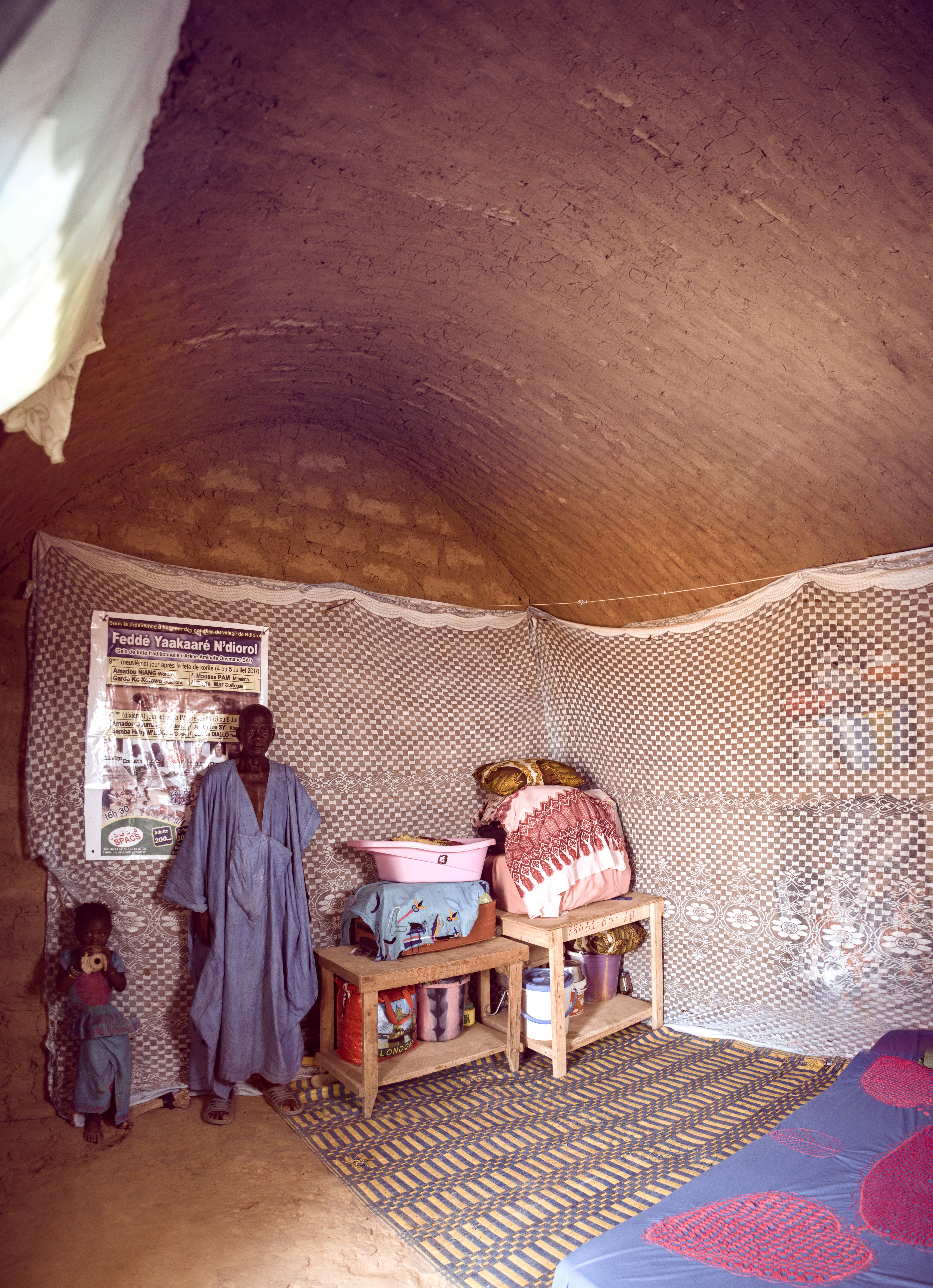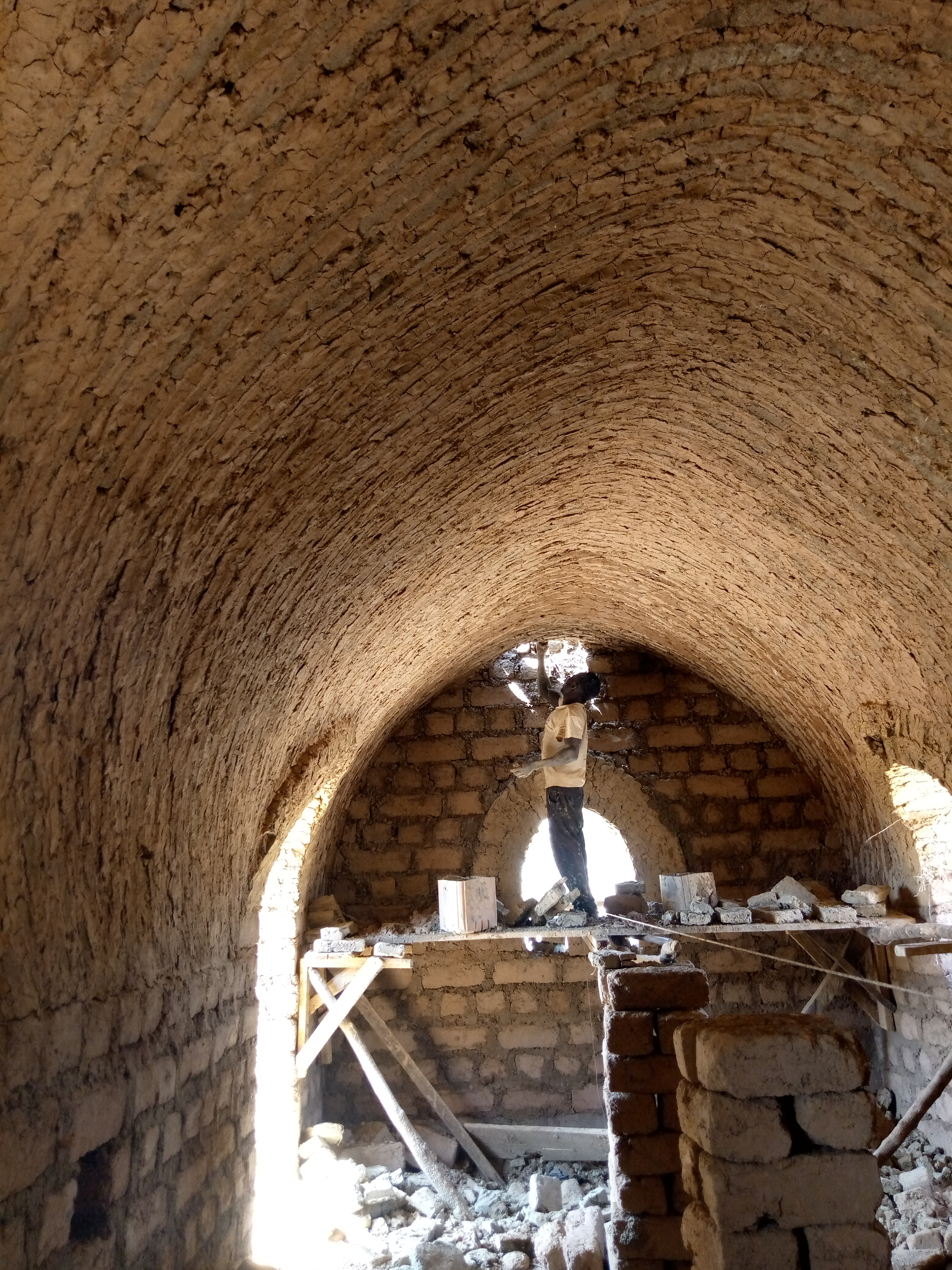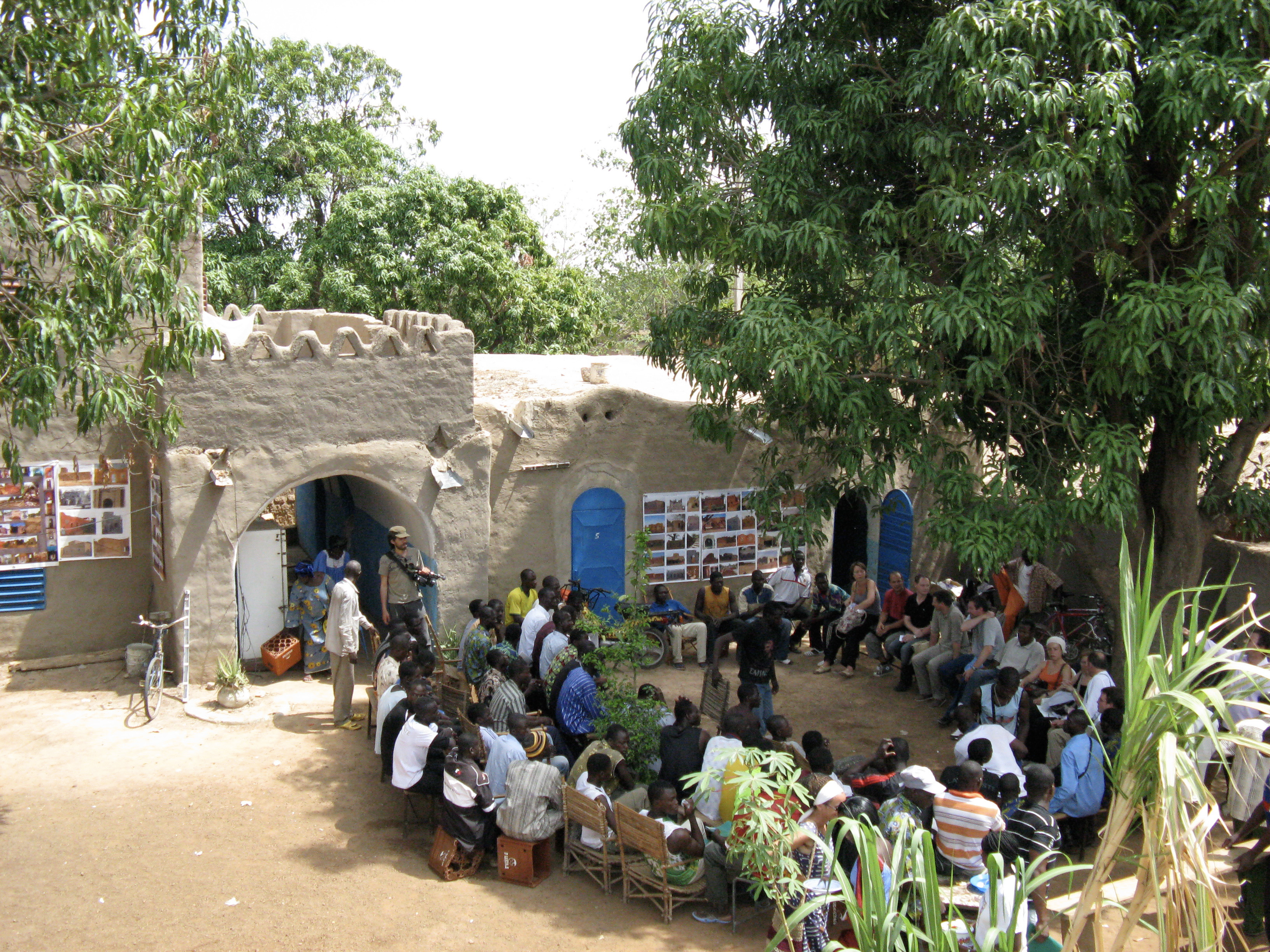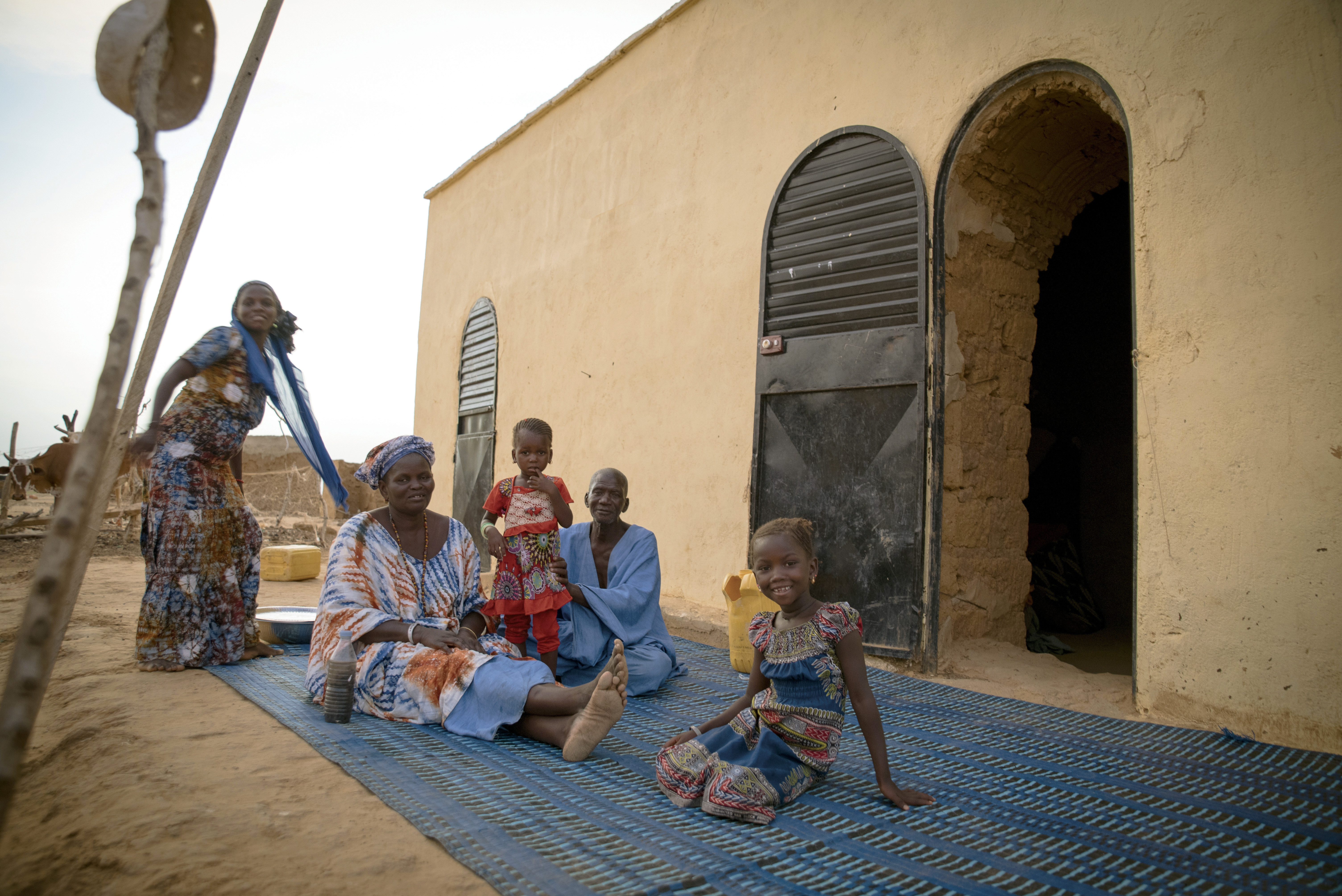Building Climate-Resilient Housing in the Sahel: A Revolution Using Traditional Knowledge
2024 LOCAL ADAPTATION CHAMPIONS AWARD NOMINEE
In West Africa’s Sahel region, communities are on the frontlines of climate change, grappling with extreme heat, destructive storms, and increasing desertification. These challenges are not just environmental—they threaten livelihoods, homes, and lives. With temperatures soaring and seasonal storms growing in intensity, the need for resilient housing has never been greater. Many rural areas, particularly in Burkina Faso, Mali, Senegal, and Ghana, are vulnerable to these climate shocks, leaving countless families at risk. Many of the current housing structures, often made from flimsy materials, cannot withstand the impacts of climate change, pushing these already vulnerable communities further into poverty.
A Local Solution: Harnessing Tradition and Innovation
To combat these urgent threats, the Nubian Vault program has emerged as a game-changing solution, providing sustainable, climate-resilient homes built from locally sourced materials. The technique, inspired by traditional building methods, uses sun-dried bricks made from raw earth to construct homes that are naturally insulated and resistant to extreme weather.

Inside of a nubian home
This innovative approach is not only environmentally friendly but deeply rooted in local traditions. “The beauty of the Nubian Vault technique is that it empowers communities to build their own future,” says Thomas Granier, CEO of the Nubian Vault Association (AVN). “We’ve simplified an ancient method, making it accessible to even the most vulnerable, while helping them tackle the effects of climate change.”
By focusing on local capacity building, the program trains community members to become skilled masons, fostering a culture of self-sufficiency. “Our mantra is simple: One Roof + One Skill + One Market. We believe that when people own the process—by learning the skills and creating a demand—this solution will naturally scale.”

Nubian mason at work
Empowering Communities: A Bottom-Up Approach
The Nubian Vault’s success lies in its community-led model, where local masons, often from the same villages they serve, are trained on the job by experienced master builders. This creates a ripple effect, as these new masons go on to build homes and train others. AVN also incentivizes community participation by ensuring that families invest their own resources in the project, fostering a strong sense of ownership.
This locally driven approach is particularly important in empowering women, who play a key role in advocating for better housing. “Women are often at the forefront of calling for safer, more secure homes because they experience the daily struggles of inadequate shelter,” Granier adds. “Their leadership has been crucial in driving the success of this program.”
At least once a year, a congress of masons and operating partners is held to share information, understand the needs and difficulties that people face, and to help AVN tailor it's interventions to the realities and needs of the communities it serves.

Masons congress
A Proven Impact: Scaling Across the Sahel
The impact of the Nubian Vault program is already tangible and growing. Since its inception, over 7,000 homes have been built, directly benefiting more than 65,000 people. Not only has this provided decent, climate-resilient housing, but it has also helped communities reduce their carbon footprints by avoiding an estimated 183,000 tons of CO2 emissions. The construction method’s reliance on local materials like earth, instead of high-emission options like cement or steel, further contributes to environmental sustainability.
Moreover, the program has trained over 4,000 masons, creating sustainable jobs and boosting local economies. In fact, 80% of the funds involved in the construction process remain within the local economy, fueling growth from the ground up. By 2023, the program had generated 6.3 million euros locally, showcasing its potential to drive both social and economic transformation.

The home owners of a new nubian vault
Looking ahead, the Nubian Vault Association is ambitiously targeting the creation of 2,500 new sites annually over the next five years, with plans to expand into Côte d'Ivoire. The program aims to integrate projects into broader urban development and climate adaptation strategies by organizing consortiums of women leaders to raise awareness and engage public institutions on the importance of adapted and climate-resilient housing.
However, AVN believes that the market is still the best way to spread the Nubian Vault from villages to regions and then countries. ANV hopes that the market for nubian vaults increasingly flourishes, that trained nubian vault craftspeople will make contracts with customers including schools, health centers, and offices directly, enabling AVN to eventually withdraw from the region.